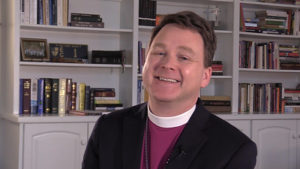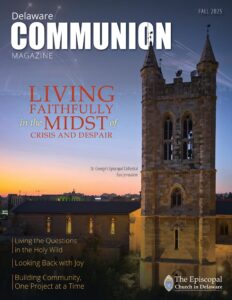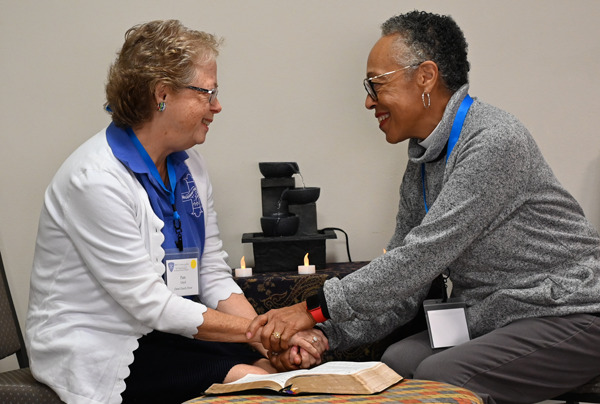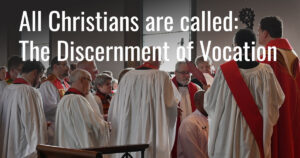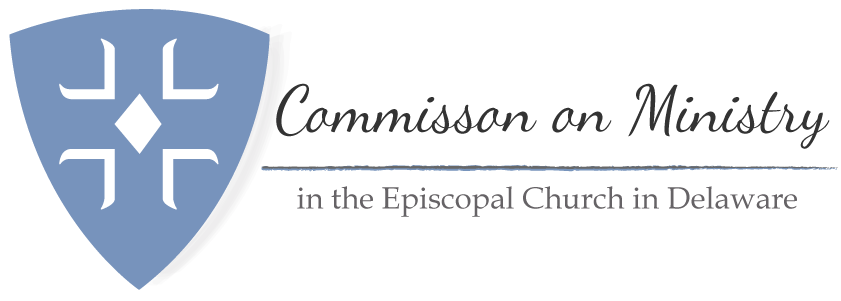
Holy Orders | Ordained Ministry
in the Episcopal Church in Delaware
Discernment Day 2025
A time for you …
|
Learn more about:
|
To RSVP or for more information contact: The Rev. Jeffrey Ross Chair of the Commission on Ministry at jross@stpeterslewes.org |
In the Episcopal Church in Delaware, holy orders and ordained ministry play a significant role in the spiritual life and governance of the church. Holy Orders refer to the sacramental rites through which individuals are set apart and consecrated for specific roles within the church’s leadership and ministry.
The Episcopal Church recognized three major orders of ordained ministry: deacons, priests, and bishops. Each order carries unique responsibilities and functions within the church’s structure and worship.
- Deacons: Deacons are called to a ministry of service, compassion and justice. They are ordained to serve both within the church and in the world. Deacons often work directly with marginalized communities, addressing social issues, and advocating for the needs of the vulnerable. They also assist in worship services and proclaim the Gospel.
- Priests: Priests, also known as presbyters, are ordained to lead congregations in worship, provide pastoral care, and administer the sacraments. They have the authority to preside over the Eucharist, preach sermons, offer spiritual guidance, and celebrate other rites of the church. Priests are responsible for nurturing the faith community, teaching, interpreting scriptures, and offering pastoral support to individuals and families.
- Bishops: Bishops are the overseers and spiritual leaders within The Episcopal Church. They are entrusted with the care and guidance of multiple congregations within a specific geographical area known as a diocese. For Delaware, it is the entire state of Delaware.
Ordination in the Episcopal Church in Delaware involves a careful discernment process, theological education, and practical training. It is seen as a vocation and a calling, rooted in the belief that God calls individuals to serve and lead the faith community. It is a commitment to a life of service, prayer, and dedication to the Gospel. Those who are ordained are called to embody the teachings of Christ, proclaim the good news, and minister to the spiritual and practical needs of God’s people.
Overall, holy orders and ordained ministry in the Episcopal Church in Delaware reflect a rich tradition of servant leadership, pastoral care, and worship that seeks to bring people closer to God and build a community of faith, love, and justice.
We invite you to learn more about ordained ministry in the compelling and informational videos below. Check out the Stephenson School for Ministry and watch for more classes and workshops to be offered in the future.
Are you being called to ordained ministry?
view the below videos to learn more about the diaconate and the priesthood.
‘Come and See‘ what a deacon is and learn more about their ministsry as deacons in the Episcopal Church in Delaware.
Learn more about the call to the priesthood from the compelling stories told by priests in the Episcopal Church in Delaware.
- View all seven videos below from the October 1, 2022 Discernment Day
(videos extracted from livestream)
- Click here to view report from the February 25, 2021 Discernment Day
- Jonathan Barrett
- Peggy Boyd
- Valerie Brunson
- Diane-Louise (D-L) Casson
- The Rev. Michael Kurth
- The Ven. Patricia Malcolm
- The Rev. Deacon Christ Miller-Marcin
- The Rev. Ben Rockwell
- The Rev. Jeffrey A. Ross, chairperson
- The Rev. Deacon Paula Waite
If you are interested in learning more or have questions, please contact:
The Rev. Jeffrey Ross
com@delaware.church

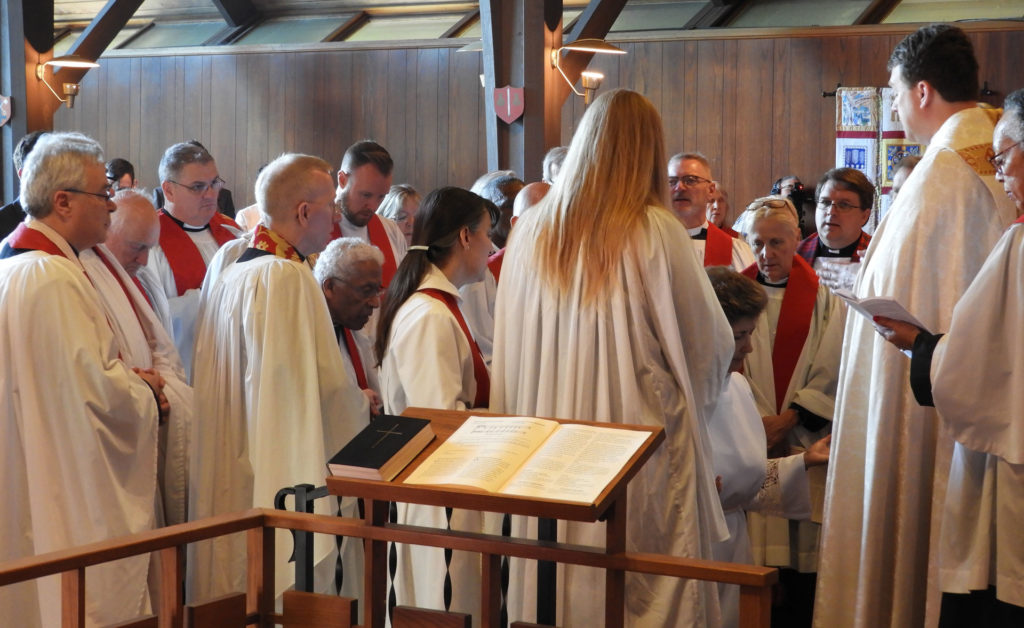
In 1970 the General Convention of the Episcopal Church passed a new canon, Canon III.1, which required each diocese to establish a Commission on Ministry. The number of members, their selection, and their terms of office are to be determined by diocesan canons.
The functions of Commissions on Ministry specified in the canon are to assist the bishop “in determining present and future needs for ministry in the diocese” and to assist “in enlisting and selecting persons for Holy Orders.” Commissions are to develop, train, and affirm lay ministries. They interview candidates prior to their ordination as deacons and may interview candidates prior to their ordination as priests, if requested by the bishop, reporting to the bishop in each case. They assist the bishop in guiding and counseling deacons and other ministers, and they assist in matters pertaining to the continuing education of the clergy.
The creation of Commissions on Ministry reflects the growing sense of the church that broad participation in decisions about all types of ministry is desirable and necessary.

